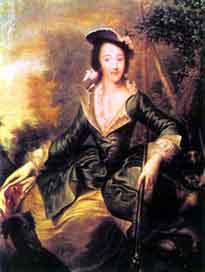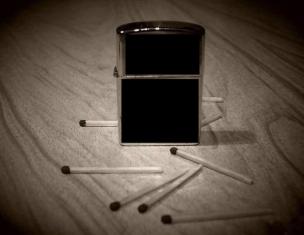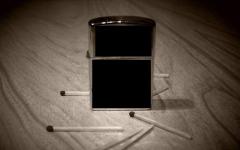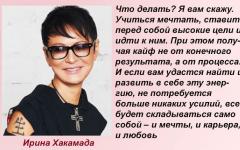In the XVIII century in the Russian Empire, the stability of the transfer of power from the monarch to the monarch was seriously violated. This period entered the story as "Epoch palace coup"When the fate of the Russian throne decided not so much the will of the monarch, how much support to influential dignitaries and guard.
In 1741, as a result of the next coup, the empress became daughter of Peter the Great Elizabeth Petrovna. Despite the fact that at the time of the advantage on the throne, Elizabeth was only 32 years old, the question arose about who would be the heir to the imperial crown.
Elizabeth had no legitimate children, and therefore hersal needed to be found among other members of the Romanov family.
According to the "Decree on the Preconsession", published by Peter I in 1722, the emperor received the right to determine his successor. However, it was easy to name a little - it was necessary to create a solid soil so that the heir was recognized as the highest dignitaries, and the country as a whole.
Bad experience Boris Godunova and Vasily Shui He said that the monarch who was not solid support could lead the country to Smoot and Chaos. Equally, the lack of heir to the throne can also lead to smoothie and chaos.
To Russia, Karl!
Elizabeth Petrovna for the sake of strengthening the stability of the state decided to act quickly. As the heir to her was chosen son Sister, Anna Petrovna, Karl Peter Ulrich.
Anna Petrovna was married for duke of Holstein-Gottorpsky Karl Friedrichand in February 1728 gave birth to him the Son. Karl Peter lost his mother just a few days after the emergence of Light - Anna Petrovna, who did not move after heavily childbirth, was cold during the fireworks in honor of the birth of his son and died.
After the grandchildren of the nephew swedish king Karl XII Karl Peter was originally considered as the heir of the Swedish throne. At the same time, no one did seriously with his upbringing. From 7 years of age, the boy was taught marching, handling weapons and other military wisdoms and traditions of the Prussian army. It was then that Karl Peter became a fan of Prussia, which subsequently affected his future.
At 11 years old, Karl Peter lost his father. The cousin uncle was engaged in education, future King of Sweden Adolf Frederick. The educators appointed to train the boy focused on cruel and humiliating punishments, which made Karl Peter nervous and fearful.
Petr Fedorovich is a great prince. Portrait of H. H. Groat
The Messenger Elizabeth Petrovna, who arrived at Karlom Peter, took him to Russia under a false name, secretly. Knowing difficulties with the throne in St. Petersburg, the opponents of Russia could well prevent this in order to subsequently use Karl Peter in their intrigues.
Bride for a hard teenager
Elizabeth Petrovna met the nephew with joy, however, he was amazed by his wool and a painful look. When it turned out that his training was carried out purely formally, it was fit and was to capture the head at all.
The first months of Karl Peter in the literal sense of the word focused and put in order. To teach him almost anew, with Azov. In November 1742, he was baptized in Orthodoxy under the name Peter Fedorovich.
The nephew was not at all as expected to see Elizabeth Petrovna. However, she continued to strengthen the dynasty, deciding how soon to marry the heir.
Considering the candidatures of brides for Peter, Elizabeth Petrovna stopped the choice on Sofia Augustus Frederick, daughter of Christian Augusta Anhalt Czyrrst, Representative of the ancient princely kind.
At the Father FicAs the girl was called at home, there was nothing but a loud title. Like the future husband, the ficker grew in Spartan conditions, even though both her parents were in full health. Home schooling It was caused by the lack of funds, noble entertainment of a small princess replaced street games with boys, after which the ficker went to dare stockings herself.
The news that Russian Empress chose Sophia Augustus Frederick to the bride to the heir to the Russian throne, shook the parents of the fic. The girl herself very quickly realized that she had a magnificent chance to change his life.
In February 1744, Sofia August Frederick with his mother arrived in St. Petersburg. Elizabeth Petrovna found a bride quite decent.
Unbearable and clever
June 28, 1744 Sofia Augustus Frederick moved from Lutherancy in Orthodoxy and received a name Ekaterina Alekseevna. On August 21, 1745, 17-year-old Peter Fedorovich and 16-year-old Ekaterina Alekseevna were announced. Wedding celebrations passed with a big sweep and lasted 10 days.
It seemed that Elizabeth had achieved what she wanted. However, the result was quite unexpected.
Despite the fact that the phrase "grandson of Peter Great" was introduced into the official naming of Peter Fedorovich, to instill a love for the empire created by Sant, did not work.
All the efforts of teachers fill out problems in education failed. The heir preferred time in entertainment, games in soldiers than in training sessions. He never learned to speak Russian well. His hobby prussian King Friedrich, without that, not addressed sympathies, it became completely obscene with the beginning of a seven-year war, in which Prussia opposed Russia.
Sometimes the annoyed Peter threw phrases like: "I dragged me into this damn Russia." And it also did not add supporters to him.
Catherine was the exact opposite of her husband. She studied Russian with such a zeal that it was almost died of inflammation of the lungs earned during classes with an open window.
Crossing in Orthodoxy, she jealously observed church traditions, and the people soon spoke about the sharedness of the wife of the heir.
Catherine actively engaged in self-education, read books on history, philosophy, jurisprudence, essays Voltaire, Montesquieu, Tacita, Beil, a large number of other literature. The ranks of the fans of her mind grew as rapidly as the rows of fans of her beauty.
Spare Empress Empress Elizabeth
Elizabeth, of course, approved such a zeal, but did not consider Catherine as a future ruler of Russia. She was taken to give birth to heirs for the Russian throne, and with this just had serious problems.
The matrimonial relations of Peter and Catherine did not fit completely. The difference of interests, the difference of temperaments, the difference of glances to life gave them away from each other from the first day of marriage. Elizabeth did not help them as educators a married couple who had lived together for many years. In this case, the example was not infected.
Elizabeth Petrovna hatched a new idea - if it was not possible to re-educate a nephew, then you need to correctly raise the grandson, which will then be transferred to power. But with the birth of the grandson, too, have problems.

Grand Duke Peter Fedorovich and the Grand Duchess Ekaterina Alekseevna with PJEM. Source: Public Domain
Only September 20, 1754, after nine years of marriage, Catherine gave birth to a son Paul. The Empress immediately took the newborn, limiting the communication of his parents with a child.
If Peter did not excite this, then Catherine tried more often to see his son, which was strongly annoyed to the Empress.
Conspiracy that failed
After the birth of Paul, cooling between Peter and Catherine was only intensified. Peter Fedorovich started his mistresses, Catherine - lovers, and both sides were aware of each other's baudders.
Petr Fedorovich, with all his shortcomings, was a person quite innocent, who did not know how to hide his thoughts and intentions. He will get rid of the unlotherapy for the throne against the throne, Peter began to speak several years before the death of Elizabeth Petrovna. Catherine knew that in this case the prison was waiting for her, or was not different from the monastery. Therefore, she secretly begins to negotiate with those who, like she herself, would not like to see on the throne of Peter Fedorovich.
In 1757, during serious illness, Elizabeth Petrovna chancellor Bestuzhev-Ryuminpreparing a coup in order to remove the heir immediately after the death of the Empress, in which Catherine was mixed. However, Elizabeth recovered, the plot was revealed, and Bestuzhev-Ryumin fell into opal. The Catherine itself was not touched, because Bestuzhev managed to destroy the compromising letters.
In December 1761, a new exacerbation of the disease led to the death of the Empress. Pavlu failed to implement the transfer plans for the transfer of power, since the boy was only 7 years old, and Peter Fedorovich became the new head of the Russian empire under the name of Peter III.
Fatal world with idol
The new emperor decided to start large-scale state reforms, many of which historians consider very progressive. A secret office was eliminated, which was the political school authority, adopted a decree on freedom of foreign trade, forbidden the murder of peasants by the landowners. Peter III published the "Manifesto on the liberty of the nobility", which was canceled by Peter I compulsory serving a meal for the nobles.
His intention to carry out the secularization of church lands and to equalize the rights of representatives of all religious denominations alert russian Society. The opponents of Peter spread the rumor that the emperor is preparing for the introduction of Lutheranism in the country, which did not add popularity.
But the biggest mistake of Peter III was the conclusion of peace with his idol, the King of Prussia Friedrich. During the seven-year war, the Russian army of the head broke the female Army of Friedrich, forcing the latter to think about renunciation.
And at this very moment, when the final victory of Russia was already being conquered, Peter does not simply concludes the world, but without any conditions Returns Friedrich all the territories lost to him. Russian army, and first of all the guard, was offended by the Emperor's step. In addition, his intention along with Prussia to start a war against yesterday's ally, Denmark, did not find understanding in Russia.

Portrait of Peter III artist A. P. Anthropova, 1762.
On the first channel - the premiere of the historical series.
Spectacular suits, large-scale scenery, famous actors - all this and much more waiting for viewers in the new historical drama "The Great", which comes out on the first channel this week. The series will take us in the middle of the 18th century - during the reign of Catherine II, the role of which was performed by Julia Snigir.
In particular, in the series the personality of Peter 3 was revised.
Slander through a century
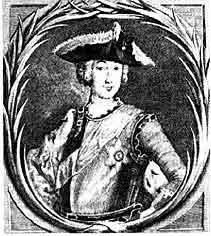
In Russian history, there is no perhaps the ruler of more hula historians than the emperor Peter III
Even about the crazy sadist Ivan Grozny, the authors of historical Studium respond better than about the unfortunate emperor. As the epithets did not receive the historians of Peter III: "Spiritual Note", "Extension", "Drunka", "Holstetsky soldier" and so on, and the like.
Usually, in our textbooks, Peter 3 is represented as a half-water, spiting for the interests of Russia, summing up for the thought that Catherine 2 came correctly, overthrowing him and killing.
What is the emperor who reigned for only six months (from December 1761 to June 1762), was she kept before scientists?
Holstein Prince
The future emperor Peter III was born 10 (21 - on a new style) February 1728 in the German city of Kiel. His father was the duke of Karl Friedrich Hollytein-Gottorpsky - the ruler of the North German land of Holstein, Mother - daughter Peter I Anna Petrovna. As a child, Prince Karl Peter Ulrich Hollytein-Gottorpsky (so called Peter III) was declared the heir to the Swedish throne.
 Emperor Peter III
Emperor Peter III
However, at the beginning of 1742, at the request of the Russian Empress, Elizabeth Petrovna Prince was delivered to St. Petersburg. As the only descendant of Peter the Great, he was declared the heir to the Russian throne. Young Duke Hollytein-Gottorspsky accepted Orthodoxy and was inflicted by Grand Duke Peter Fedorovich.
In August 1745, the Empress married the heir to the German princess of Sofia Frederic Augustus, the daughter of Prince Anhalt-Crebstsky, held at the Military Service at the Prussian King. Having accepted Orthodoxy, Princess Anhalt-Zerbstskaya became called the Grand Duchet Catherine Alekseevna.

The heir and his spouse could not endure each other. Peter Fedorovich had mistresses. The last passion was the Countess Elizaveta Vorontsov, the daughter of General-Anshuf Roman Illarionovich Vorontsov. Ekaterina Alekseevna had three permanent lovers - Count Sergey Saltykov, Count Stanislav Schnisovsky and Count Chernyshev. Soon the Favorite of the Great Princess was the officer of the Life Guard Gregory Orlov. However, she often entertained with other guards officers.
On September 24, 1754, Catherine gave birth to the Son, who was called Paul. At the court, they rumored that the real father of the future emperor is the lover of Catherine Count Saltykov. Petr Fedorovich himself bitterly grinned:
"God knows where my wife takes her pregnancy." I don't know too much, is it a child and should I take it to my account ...
Short reign
On December 25, 1761, Empress Elizabeth Petrovna revealed in the Bose. Peter Fedorovich entered the throne - Emperor Peter III.
First of all, the new sovereign stopped the war with Prussia and brought Russian troops from Berlin. For this, Peter hated guards officers who have thirsty of military glory and combat awards. Unhappy with the actions of the emperor and historians: scientists are neglected, which de Peter III "brought no results of Russian victories."
It would be interesting to find out which results do dear researchers mean?
As you know, the seven-year war of 1756-1763 was caused by the exacerbation of France's struggle and England for overseas colonies. For various reasons, seven other states were drawn in the war (in particular, Prussia, which conflicted with France and Austria). But what interests persecuted Russian empire, speaking in this war on France and Austria, is completely incomprehensible. It turned out, Russian soldiers for the right French robbing colonial peoples. Peter III stopped this senseless slaughter. For which he received a "strict reprimand with a letter" from grateful descendants.
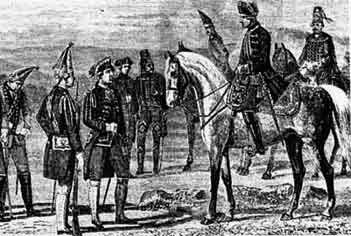
After the end of the war, the emperor settled in Oranienbaum, where, according to historians, "indulged in drunkenness" with his Holstein companions. However, judging by the documents, from time to time Peter was engaged in state affairs. In particular, the emperor wrote and unveiled a number of manifestos about the transformation of the state system.
Here is a list of first events that Note Peter III:
First, it was secret Chancellery abolished - The famous secret state police, who visited the horror at all, without the exception of the subjects of the empire from prostrophin to hurriedly sponsor. For one denunciation, the agents of the secret office could grab any person, conclude it to the chamberis, to betray the most terrible torture, execute. The emperor freed the subjects from this arbitrariness. After his death, Catherine II restored the secret police - entitled "The Secret Expedition".
Secondly, Peter announced freedom of religion For all of their subjects: "Let them pray to whom they want, but - not have them in the crigngement or in the curse." It was almost unthinkable for that time step. Even in enlightened Europe, there was no complete freedom of religion. After the death of Emperor Ekaterina II, a girlfriend of French enlighteners and the "philosopher on the throne", canceled the decree on freedom of conscience.
Third, Peter canceled church supervision For the personal life of the subjects: "About the sin of adulterators not to have anyone to condemnation, because Christ did not condemn." After the death of the king, the church espionage was revived.
Fourth, implementing the principle of freedom of conscience, Peter stopped persecuting old goods. After his death, state power resumed religious persecution.
Fifth, Peter announced liberating all monastic fortress. He submitted to the monastic estates to the civilian colleges, gave an arable land in the eternal use of the former monastery peasants and laid them only by ruble lifts. For the content of the clergy, the king appointed a "own salary".
Sixth, Peter allowed nobles unimpeded leaving abroad. After his death, "Iron Giveno" was restored.
Seventh, Peter announced the introduction in the Russian Empire vowel court. Catherine canceled the publicity of proceedings.
In eighth, Peter issued a decree about " nepharanidity service", I forbid presenting senators and government officials with gifts with peasant souls and state lands. Signs of the promotion of higher officials were to be only orders and medals. Having entered the throne, Catherine was the first thing to do its associates and favorites with peasants and estates.

In addition, the emperor has prepared Mass other manifestos and decrees, including the restriction of the personal dependence of the peasants from landowners, about the optional service in the army, about the optional of respect for religious posts, etc.
And all this was done in less than six months of the reign! Knowing it, how can you believe to afford the "non-digestion" Peter III?
Obviously, the reforms that Petr intended to implement, ahead of their time for a long time. Could their author who dreamed of approving the principles of freedom and civil dignity, to be a "spiritual insignificance" and "Holstein soldier"?
Conspiracy
So, the emperor was engaged in state affairs, in between whom, if you believe historians, smoked in Oranienbaum.
And what did the young Empress make at this time?
Ekaterina Alekseevna with his numerous lovers and halters settled in Peterhof. There she actively intrigued against her husband: collected supporters, through lovers and their companions spread rumors, attracted officers to their side.
By the summer of 1762, there was a conspiracy, the soul of which became the Empress. In conspiracy, influential dignitaries and commander were involved:
Count Nikita Panin, a valid secret adviser, chamber, senator, teacher of Tsarevich Paul;
His brother Count Peter Panin, General-Annef, the hero of the seven-year war;
Princess Ekaterina Dashkova, in Maiden - Countess Vorontsova, the nearest girlfriend and the companion of Catherine;
Her husband is Prince Mikhail Dashkov, one of the leaders of the St. Petersburg Masonic Organization;
Count Cyril Razumovsky, Marshal, Commander of the Izmailovsky Regiment, Hetman, President of the Academy of Sciences;
Prince Mikhail Volkonsky, diplomat and commander of a seven-year war;
Baron Corf, Head of the Petersburg Police, as well as Numerous Leib Guard officers led by the Orlov Brothers.
According to a number of historians, influential Masonic circles were involved in the storage. In the nearest environment, Catherine "Volnaya Masonicov" represented a certain mysterious "Mr. Odar". According to an eyewitness of the events of the Danish Messenger A.Suummore, under this name, the famous adventurer and adventure seeker Count Saint-Germain was hidden.
Events accelerated the arrest of one of the conspirators of the captain-lieutenant Pastec.

On June 26, 1762, Orlov and their pleasures began to make soldiers of the capital garrison. For money that Catherine took from the English merchant Felten supposedly to buy decorations, more than 35 thousand Vodka buckets were purchased.
On the morning of June 28, 1762, Catherine, accompanied by Dashkova and the Orlich brothers, left Peterhof and went to the capital, where everything was ready. The dead drunk soldiers of the Guards regiments brought the oath of "Empress Ekaterina Alekseevna", a strongly drunk crowd of the townsmen welcomed the "Lack of a new reign".
Peter III with a retinue was in Oranienbaum. Upon learning of the events in Petrograd, ministers and generals betrayed the emperor and fled to the capital. With Peter, there were only old Feldmarshal Minich, General Gudovich and somewhat close.
On June 29, the emperor, struck by the betrayal of the most trusted people and not having a desire to get involved in the struggle for an impaired crown, renounced the throne. He wanted only one thing: In order for him to be released into his native hand with the mistress of Ekaterina Vorontsova and the faithful Adutanth Gudovich.
However, by order of the new government, the depth king was sent to the Palace in Ropsch. On July 6, 1762, the brother of the lover of Empress Alexei Orlov and his companion Prince Fyodor Baryatinsky strangled Peter. It was officially announced that the emperor "died of inflammation in the guts and apoplexic strike" ...
Slander
So, the facts do not give any reason to consider Peter III "Nonignvance" and "Soldatina". He was heard, but not a dementant. Why are the historians so persistently housing for this sovereign? St. Petersburg poet Victor Sosna decided to figure out this problem. First of all, it was interested in the question: what sources were dragged (and they continue to draw!) Researchers dirty gossip about "dementia" and "insignificance" of the emperor?
And so it was found: it turns out to be sources of all the characteristics of Peter III, all these gossip and affection are the memoirs of the following persons:
empress Catherine II - which hated and despised her husband, who was inspiration of a conspiracy against him, which actually directed the hand of the murderers of Peter, who finally, as a result of the coup, became an autocracy government;
princess Dashkova - Girlfriend and the like-mindedness of Catherine, who still hated and despised Peter (contemporaries grew up: for the fact that Peter preferred her older sister - Catherine Vorontsov), who was the most active participant of the conspiracy, which after the coup was the "second lady of the empire" after the coup ;
count Nikita Panin - a close employee of Catherine, who was one of the leaders and the main ideologue of the conspiracy against Peter, and soon after the coup was one of the most influential ideels and was headed by the Russian diplomatic department for almost 20 years;
count Peter Panin - Brother Nikita, who was one of the active participants of the conspiracy, and then became a trusted and demanded monarch of grace by the commander (it was Peter Panin Ekaterina instructed to suppress the uprising of Pugachev, who, by the way, declared himself "Emperor Peter III").
Not even a professional historian and not being familiar with the subtleties of the sources and criticism of sources, it is possible to suggest that the person named above is unlikely to be objective in assessing the person they betrayed and killed.
The Empress and her "accomplices" had little to overthrow and kill Peter III. To justify their crimes, they had to wrap their victim!
And they diligently lied, cumbersome gossip and dirty fictions.
Catherine:
"From the age of the last year he was addicted to drunkenness." "He manifested the neversome ...". "His mind was childish ...".
"He came to despair. It often happened to him. He was a cowardly heart and weak head. He loved oysters ..."
In his memoirs, the Empress put the killed by the spouse with a drunkard, a buddy, a coward, a fool, a slacker, a samboram, a slightly, empty, ignorant, a female ... "What a fear of her husband only for having killed him!" - Victor Sosna exclaims.
But, oddly enough, scientists who wrote dozens of volumes of the dissertations and monographs, did not doubt the murderers of the murderers about their victim. Until now, in all textbooks and encyclopedias, you can read about the "insignificant" emperor, which "brought no results of Russian victories" in a seven-year war, and then "dried up with Holsteins in Oranienbaum."
At lies - long legs ...
Persons who are forced by their actions (and in some cases even their contemporaries) to catch up with their shoulders and wondered - "Did the people of this country have at least some benefit?".
Unfortunately, among this kind of figures come across and people who, by virtue of their origin, fell on the very top of Russian state power, bringing their actions to Supbar and disorder progressive movement State mechanism, and even frankly harm Russia across the development of the country. These people can be attributed to russian emperor Peter Fedorovich, or simply Tsar Peter III.
Peter III's activities at the emperor's post was inextricably linked to Prussia, which was in the middle of the 20th century a large European power and a well-known role in a large military conflict of that time - a seven-year war.
Seven-year war in briefly can be described as a war against the too stupid after the section of the Austrian legacy of Prussia. Russia participated in the war in the framework of the Antiprucian Coalition (consisting of France and Austria in accordance with the Versailles Defense Union, and joined Russia in 1756).
In war, Russia defended its geopolitical interests in the Baltic region and northern Europe, in the territory of which Prussia rushed his ancient view. The short reign of Peter III due to its excessive love for Prussia has a detrimental effect on the Russian interests in this region, and how to know - how would the story of our state, if he stayed on the throne longer? After all, after the surrender of positions in a practically won war with Prussians, Peter was preparing for a new campaign - against the Danes.
Peter III Fedorovich was the son of the daughter of Peter I Anna and the Duke of the Hollytein-Gottorpsky Charles Friedrich (who was the son of the sisters of the Swedish king Karl XII. And this created a well-known paradox for the reigning houses of the two powers, since Peter was the heir to both the Russian and Swedish throne).
The full name of Peter sounded like Karl Peter Ulrich. The death of a mother who followed a week after his birth left Peter actually orply, as Charles Friedrich's rampant life did not allow him to raise his son properly. And after the death of the Father in 1739, his educator became a kind of Gofamarshal O. F. Bummer, the old hardening of a harsh soldier, who subjected the boy to every punishment for the slightest provinces, and the ideas of Lutheran meekness and Swedish patriotism (which indicates that Peter was prepared originally Still to the Swedish throne). Petr grew impressionable nervous person, loved art and music, but mostly adored the army and everything that at least somehow was connected with military affairs in all other areas of knowledge he remained a complete ignorant.
In 1742, the boy brought to Russia, where his aunt was engaged, Empress Elizabeth Petrovna. He was baptized under the name of Peter Fedorovich, and Elizabeth picked up a candidate for his wife's daughter of Christian-August Anhalt of the Church and Johann-Elizabeth - Sofia Augustus Frederik (in Orthodoxy - Ekaterina Alekseevna).
The relationship with Catherine near Peter did not set themselves from the very beginning: the infantile young man was strongly inferior to his wife, was still interested in children's military games and at all showed any signs of attention to Catherine. It is believed that until the 1750s, there was no relationship between the spouses, but after a certain operation, Catherine gives birth from Peter in 1754 the Son of Paul. The birth of the Son did not help bring together other people in essence, Peter appears the favorite of Elizabeth Vorontsov.
At about the same time, Peter Fedorovich is discharged by a regiment of Holchta soldiers, and almost everything free time He holds at the plases, completely relied on military Mushtra.
During his stay in Russia, Peter almost never learned Russian language, he did not love Russia at all, did not try to learn her story, cultural traditions, and many Russian customs simply despised. In the same disrespectful, his attitude towards the Russian Church was also, - according to the testimony of contemporaries, during church services he led himself inappropriately, did not observe the Orthodox rites and posts.
Empress Elizabeth deliberately did not allow Peter to solve any political issues, leaving behind him the only position of the director of the Shuttle Corps. At the same time, Peter Fedorovich, not embarrassed, criticized the actions of the Russian government, and after the start of the seven-year war, the sympathy for Friedrich II, the Prussian king, was openly showed. All this, of course, did not add any popularity, not any small respect for him from the circles of Russian aristocracy.
Interesting foreign policy prologue of the reign of Peter Fedorovich was the case, "Announced" with Field Marshal S. F. Apraksin. Russia entered into a seven-year war rather quickly seized the initiative at the Problande direction, and the Army of Friedrich II rubbed the entire spring, 1757. A powerful Natius of the Prussian army for the Neman River after the general battle with the village of Gross-Jersdorf, Apraksin suddenly turned Russian troops back. Walking only after a week of Prussians quickly arrived lost positions, and pursued Russians on the heels right up to the Prussian border.
What happened to Apraksin, this experienced commander and veteran-warrior, what did you find on it for pond?
An explanation serves as a reveuzheva-Ryumin-Ryumin-Ryumin from the capital of the Russian Empire about the sudden illness of Elizabeth Petrovna's sudden illness from the Chancellor. It is logical to judge that in the case of her death, Peter Fedorovich will come to the throne (formerly crazy from Friedrich II) and for military actions with the Prussian king on his head it will not definitely not stroke, Apraksin (most likely - by order of the reinsured reinsured Bestumeva-Ryumin ) Reaches back to Russia.
It happened, Elizabeth moved away from the disease, who fell into disgrace, the Chancellor was sent to the village, and Field Marshal was given to the court, then three years later and ending with a sudden death of apraksin from apoplexic strike.
Portrait of Peter III Artist A. P. Anthropova, 1762
However, later Elizabeth Petrovna still dies, and at December 25, 1761 Peter Fedorovich joins the throne.
Literally from the first days after the first time, Peter III developed a rapid activity, as if proving all the royal court and herself that he could rule his aunt. According to one of the contemporaries of Peter, "already in the morning he was in his office, where he heard reports ..., then hurried to the Senate or College. ... in the Senate for the most important affairs, he fell energetically and assert. " As if in imitating her grandfather, Peter I reformer, he intended to conduct a series of transformations.
In general, in 186 days of his reign, Peter managed to publish many legislative acts and rescripts.
Among them, you can call a decree on the secularization of church land ownership and manifesto about the "all-Russian noble nobility of liberty and freedom" (thanks to which the nobles received an exceptionally privileged position). In addition, Peter as if he began a certain struggle with the Russian clergy, making a decree on compulsory shave of the beard of priests and prescribing the form of clothing, very similar to the form of Lutheran pastors. In the army of Peter III, the Prussian orders of carrying military service have been universally imposed.
In order to somehow raise steadily falling popularity of the new emperor, his approximate insisted on the implementation of some liberal laws. For example, by signing the king was issued a decree on the abolition of the secret search of the office.
From a positive side, the economic policy of Peter Fedorovich can be characterized. He created the State Bank of Russia and issued a decree on the production of assignments (entered into force already under Catherine), Peter III decided on freedom of foreign trade of Russia, - all these undertakings fully fully, but embodied already in the reign of Catherine Great .
How interesting were the planes of Peter in the economic industry, cases in the foreign policy sphere were just as sad.
Shortly after the Edema of Peter Fedorovich, Friedrich II Heinrich Leopold von Goltz arrives at the throne in St. Petersburg, whose main purpose was in negotiations on the separatic world with Prussia. The so-called "Petersburg World" dated April 24, 1762 with Friedrich was concluded: Russia returned all the conquered in Prussia Eastern Earth. In addition, new allies agreed to provide each other military assistance in the form of 12 thousand people of infantry and 4 thousand cavalry units in the event of war. And this condition for Peter III was much more important because he was preparing for war with Denmark.
According to contemporaries, Ropot on Peter, as a result of all these dubious foreign policy "achievements", was "nationwide". The stirring of the conspiracy was the wife of Peter Fedorovich, relations with which recently worsened suffered. The speech of Catherine, who announced himself on June 28, 1762 by Empress, was supported in Wednesday Guardsmen and a number of courteous nobles, "Peter III Fedorovich did not have anything, how to sign paper about his own renunciation from the throne.
On July 6, the Petr is temporarily located in the town of Ropsh (before the translating to the Schlissburg fortress), Peter dies "from hemorrhoidal fell and breaking colic."
So ended the inglorious short reign of non-Russian in spirit and acts of Emperor Peter III.
Emperor Peter III (1728-1762) Rules of the Russian Empire in 1761-1762. The term of its rule amounted to only 186 days. He joined the throne on December 25, 1761, and already on June 28, 1762 he was overthrown by his wife Catherine.
This sovereign accounted for the son of the eldest daughter of Peter I, Anne Petrovna (1708-1728), born from the love relationship of the emperor-reformer with March of the Skavron (future Empress Catherine I). In 1725, Zesarevna Anna married the Duke of Charles Friedrich Holstein-Gottornpsky. In the summer of 1727, the spouses went to the capital of Holstein the city of Kiel, and on February 10, 1728, Anna gave birth to a son, whom Karl Peter Ulrich called. So the future sovereign Peter III was born.
Portrait of Emperor Petr III
Artist L. K. Pfanzelt, 1762
The mother of the boy shortly after the birth died from the maternity hospital. Before the death, she expressed the desire to be buried in St. Petersburg. The last will of the young woman was fulfilled, and she was buried in the Petropavlovsky Cathedral.
Father paid his son a minimum of attention. He gave him to the hands of ignorant and cruel educators. Those more mocked the child than the knowledge given him. The boy seques by rods for the slightest provinity, and he turned into a nervous, fearful, but at the same time his innocent and naive young man.
In 1739, the father of the boy Karl Friedrich died. The young prince received the title of Duke of Golucket. In 1741, Aunt Carl Peter Elizaveta Petrovna, who had come to power in the Russian Empire, came to power in the Russian Empire, who was visited by Anna younger sister. The empress had no children who climbed to the throne, so she immediately caused her nephew. He was painted in Orthodox ritual, called Peter Fedorovich and declared the heir to the Russian throne.
Initially, the nephew has a good relationship with aunt, but then they spoiled. The young man turned out to be indifferent to the whole Russian, since the children's years of his life passed in Holstein. Therefore, he kept himself as the Empress did not like. She saw in the nephew of a man's stubborn, stubborn and little capable to manage a huge country. Imperial courtyard Also treated the heir to the throne as a stranger.
In 1745, Peter Fedorovich was married to the church princess Sophia Frederic Augustus. She accounted for a fiancian sister. In Russia, the bride came together with his mother in 1744, adopted Orthodoxy and received the name of Ekaterina Alekseevna.
At the time of marriage, the bride was 16 years old, and the groom 17. In addition, a young husband continued to remain a big child. He played the soldiers and to other children's games, not paying his wife any attention. Only in 1754, the son of Pavel was born from the Couple. The baby was immediately taken away from the parents, and his Empress itself was engaged in his upbringing. In 1757, Ekaterina gave birth to Anna girl. But that died of smallpox in 1759.

Portrait of Peter III Fedorovich and his wife Ekaterina Alekseevna
Petra III Board (1761-1762)
Empress Elizaveta Petrovna died on December 25, 1761, and the Emperor Peter III entered into the Russian throne. It should be noted that in a short term of its reign, a new state managed to implement many important decisions.
He abolished the secret office. He initiated the release of paper money (assignments). They appeared in the turn in 1769. Issued a decree on freedom of foreign trade. I put an end to the persecution of the Old Believers. Many legislative acts that were adopted during the Board of Peter III Fedorovich became the foundation at which Catherine II subsequently reigned.
A very important document was adopted - "Manifesto on the liberties of the nobles." With Peter I, the nobles served the state all their lives. With Anna Ioannne, the term was reduced to 25 years. Now the nobility was right not to serve public service. However, further to those people who ignored the service were pretty mockingly. They were called inexpensive Regardless of age and title. Therefore, as a rule, everyone served.
The sovereign stopped hostilities with Prussia, which was treated extremely successful for Russia when Elizabeth Petrovna. The world was concluded with Friedrich II. On him, all conquered lands in Eastern Prussia, for which Russian soldiers shed their blood, were returned to the enemy. Thus, the Russian Empire came out of the seven-year war with virtually nothing.
And although inside the country of reforms were clearly progressive, the emperor set up against himself the guard and the nobility. He demonstratively neglected the customs and traditions of Russia, introduced the Prussian form in the army, and also decided to start a war against Denmark in Union with Prussia. At the same time, it was decided to send the Guard to the Danish hike.
The dissatisfaction with the actions of the emperor grew, and the authority of his wife Ekaterina Alekseevna was strengthened. She started a lot of useful ties at the court, surrounded himself with favorites from the Guardsmen and began to think about the Russian crown seriously. In a word, a conspiracy arose, at the head of which was the spouse of the dealer of All-Russian.
The sovereigns have repeatedly spoke well-wishers, which is preparing his overthrow. But he shouted from such messages, and in the summer of June 28, 1762, the coup was accomplished. That day, Catherine went early in the morning from Peterhof, where the emperor was with his yard.
At the same time, the guardsmen of Orlov's guards raised the rebellion. The troops came out of the barracks to the streets of the capital and welcomed Catherine who arrived from Peterhof. Then they sworn to her loyalty and together with the newly minted sovereign moved to Peterhof.
Having learned about this, Emperor Peter III tried to hide in Kronstadt. But he already swore Catherine. Then the sovereign went to Oranienbaum, where the rebel guardsmen soon appeared. They arrested autocrats, and he signedly signed a renunciation from the throne. After this overthrown sovereign under the enhanced security was sent to the estate of Ropsha. On the territory of the estate on July 6, 1762, he died. Death was mysterious. It is assumed that Peter III strangled guardsmen.
The body buried without honors in the Alexander Nevsky Lavra. In 1796, when Catherine II, Emperor's dust moved to Petropavlovsky Cathedral.
Alexey Starikov
(Start)
Peter Fedorovich and Ekaterina Alekseevna. In 1742, Elizaveta declared the heir of his nephew, his native grandson of Peter the Great (and grandson sister Karl XII Swedish) Duke Schleswig-Holstein Karl-Petra Ulrich. For Russian people, he was the same German Prince, as those from which in 1741 was released russian Society And which he was so pushed. This choice or, it is better to say, the need for this choice of Elizabeth soon began to be considered a serious misfortune. The fourteen-year-old, orphaned duke was transported from Holstein to Russia, found a second mother in Elizabeth, accepted Orthodoxy and instead of German education began to receive Russian. In 1745 he was hurried to marry. The question of the bride was very long discussed at the court, because the marriage was given political importance And they were afraid to make a mistake. Finally, Elizaveta stopped on the face, which pointed out, in contrast to the Bestuzhev, the French-Prussian party, on which Friedrich Prussian pointed, - on the Princess Sofia-August-Frederic Anhalt Cerebst. Her father was only by the General Prussian Service, Shtetina Commeditant; Mother in concerns about a pretty poor farm managed to lose a sense of tact and good character, acquiring an inclination to the compassion and peres. The bride with the mother came to Russia, adopted Orthodoxy and was named Catherine Alekseevna; On August 25, 1745, a wedding of 17-year-old Peter has occurred with 16-year-old Catherine. But everyone noticed that the bride was cold to the bride and straightly quarreled with the future mother-in-law. However, the mother of Catherine showed his unrelative character in relation to everyone and therefore was sent from Russia in the same 1745, young couple remained lonely in the Great Elizabethan Palace, being tearing off from the German environment, from the situation of his childhood. And her husband and his wife had to determine their identity and their relationship with the court.
Grand Duke Peter Fedorovich (future Peter III) and the Grand Duchess Ekaterina Alekseevna (Future Catherine II)
Peter Fedorovich was a man with her own dedicated and physical forces, and mental, early Mother and Father lost early and remained on the hands of Gofamarshala Bruhmmer, who was more soldier than the educated person, more stronger than the teacher. The childhood of Peter passed so that it could not be remembered. His upbringing was tried, like his education. Belummer established such an order of life for his pupil, who could not fail to upset his health, and without that weak: for example, with long classes, the boy did not have a mice and did not eat until two o'clock in the afternoon. And at an hour of lunch, the dominal duke often only looked from the corner, as his courtyard ate lunch in which he was called teachers. Bad of the boy, he did not allow him to develop, why he became sluggish and weak. Moral education was negligible: standing on his knees on the peas, decoration with donkey ears, blows of a whip and even beating than was the ordinary means of pedagogical belief. A number of moral humiliations before the courtiers, coarse yields of the belly and its arrogant leaving could not, of course, work out in a prince or sensible moral concepts, no sense of human dignity. Mental education was also bad. Peter studied many languages, many objects, but they taught him through force, without considerably with his weak abilities, and he deviated little and received disgust to the teaching. Latin, which at that time was obligatory for each educated person, he was tired of the fact that he forbade Latin books in St. Petersburg in St. Petersburg. When he appeared to Russia and Elizabeth met him, she was surprised by the poverty of his knowledge. He was taken again to learn, already at the Orthodox Russian Federation. But Peter's diseases were prevented by science (in 1743-1745. He was seriously sickly sick), and then marriage. Having having learned the Orthodox Catechisis, Peter remained with the views of the German Protestant. Getting acquainted with Russia from the lessons of Academician Schlyanin, Peter was not interested in her, I missed the lessons and remained a very ignorant and undeveloped person with german views and habits. Russia he did not love and thought superstitly that he could not be overcome in Russia. He was interested in some "envelope": he loved to dance, childishly stitched and playing soldiers. The military business was interested in the highest degree, but he did not study him, but he was amused and, as a German, revealed to the King Friedrich, who he always wanted to imitate and never knew anything in everything.
The marriage did not form him and could not make it because he did not feel his strangest and was very good opinion about yourself. His wife, who was immeasurably above him, he looked down. Since it was stopped learning, he considered himself an adult man and, of course, did not want to learn from his wife, neither her clutch, neither her restraint, nor, finally, her businesslikeness. Affairs he did not want to know, on the contrary, expanded the repertoire of the fun and strange tricks: on the whole clock she slammed on the rooms of the Kunket whip, then unsuccessfully practiced on the violin, he collected the palace lackers and played with them to the soldiers, then produced toy soldiers, arranged toy Fortresses, wrecked the guard and made toy military exercises; And once, on the eighth year of his marriage, he judged on military laws and hung the rat, eating his starch soldier. All this was done with serious interest, and it was clear that these games in the soldiers were extremely occupied. He woke his wife at night so that she would eat the oysters with him or became on his clock at his office. He described the beauty of his woman in detail in detail and demanded attention to such an offensive conversation for her. Tactlessly belonging to Catherine and insulting her, he did not have a clock and in relation to unauthorized persons and allowed himself different vulgarity: for example, in the church during service, behind his back, he messed up the priests, and when Freillins watched him, he showed them the language But so that the aunt is not seen: he was still very afraid of his aunt. Sitting at the table, he mocked her servant, poured her dresses, pushed dishes on the neighbors and tried to get drunk as soon as possible. The heir to the throne, an adult and father of the family behaved like this (in 1754 he was born a son Pavel). "Peter discovered all signs of stopped spiritual development," says S. M. Solovyov, "he was an adult child." Empress Elizabeth understood the properties of Peter and often cried, worrying for the future, but to change the order of the throne was not solved, because Peter III was a direct descendant of Peter the Great.
They did not lose, however, hopes to potate and teach Peter to affairs. Schlyanin continued to acquaint him with state affairs theoretically, and in 1756 Peter appointed a member of the conference established as we saw for particularly important cases. At the same time, as the Duke of the Golucket Peter every week, "on Monday and Friday, with his Holstea ministers, the Council kept and the affairs of his duchy managed." All these concerns had some result. Peter became interested in affairs, but not Russia, but Holt. It is unlikely that he learned them well, but he learned his Holstet views, wanting to win the Holstetsky lands in Denmark and hung up with Holstein soldiers and officers, whom he was allowed from 1755 to bring to Russia. With them in the summer he lived in the camps in Oranienbaum, hesitated their soldier's manners and fondness, they learned how to smoke, drink a soldamers and dream of the Holstet conquest.

Russian Empress Elizaveta Petrovna. Portrait of V. Erixen
It was determined over time and the relationship of Peter to Russia and Russian cases. He spoke his wife that "not born for Russia, that he is unsuitable for Russian and Russian is unsuitable for him and he is convinced that he will die in Russia." When the Swedish throne was liberated and Peter could not take him, although he had the right, he spoke angrily out loud: "I dragged me into this damn Russia, where I should consider myself to the state arrestant, whereas if I left me in the wild, now I would sit on the throne of the civilized people. " When Peter attended the conference, he filed his opinions and a complete stranger was discovered in them political position Russia; He argued about Russian interests from the point of view of his love for the Prussian king. So, ignorance of Russia, contempt for her, the desire to leave her, Holstetsky sympathies and the lack of a mature personality distinguished the future of the Russian emperor. Chancellor Bestuzhev seriously thought about or completely eliminating Peter from power, or to protect the interests of Russia in other ways from his influence.
A completely different kind of man was the wife of Peter, the Grand Duchess Ekaterina Alekseevna. Growing in a modest family of a minor prince, a strict Protestant and Father, Catherine received some formation, increased its own observation and susceptibility. In childhood, she traveled a lot in Germany, saw a lot and heard. Already then, she has been the attention of observation persons with their lively and abilities: one canonon engaged in Braunschweig, he noticed her mother: "I see at least three crowns on your daughter's forehead." When Catherine and Mother called to Russia, for her there was no secret to the goal of the trip, and a brisk girl managed to make her first steps with a big tact. Her father wrote her to lead a number of rules of prudent restraint and modesty. Catherine to these rules joined his own tact and wonderful practical flair and burned Elizabeth, won the yard sympathy, and then the people. Not older than 15 years, she behaved better and smarter than her leader mother. When the mother quarreled and gossipped, the daughter tried to acquire a common location. She diligently engaged in Russian language and Orthodox fault. Brilliant abilities allowed her to have great progress in a short time, and with the ceremony of baptism, she so firmly read the character of the faith that everyone surprised them. But the news was preserved that the change of religion for Catherine was not so easy and glad, as she showed Empress and the yard. In pious embarrassment before this step, Catherine cried a lot and, they say, looking for comfort from Lutheran pastor. However, the lessons of the Orthodox lawmaker did not stop. "Ambigid takes his", "one diplomat noticed about this. And Catherine herself confessed that she was ambiguous.

Ekaterina II after arriving in Russia. Portrait of L. Karavak, 1745
Not loving either a husband, nor Elizabeth, Catherine nevertheless kept themselves against them very well. She tried to correct and cover all the rest of her husband and did not complain about him. To Elizabeth, she treated respectfully and as if looking for her approval. In court medium, she was looking for popularity, finding any affectionate word, trying to apply to the doors of the courtyard, trying to seem a purely Russian pious woman. At the time when her husband remained a Holfin, and despised the Russians, Catherine wanted to stop being a German and refused after the death of his parents from all right to his anhalt-cersbst. Her mind and practical care forced those surrounding to see in her great strength, to predict a big court influence behind it. And indeed, Over the years, Catherine took a prominent position at the court; She was known from the good side even in the masse. For all, she became more visible and prettier than her husband.
But the personal life of Catherine was unquest. His husband left and left for whole days, Catherine did not know what to do, because there was no society at all: she could not get closer with the court ladies, because "dare to see only the maids", according to her own words; She could not get closer with the circle of court men, because it was uncomfortable. It remained to read, and the "reading" of Catherine continued the eight first years of her marital life. At first she was reading the novels: a random conversation with a friend more in Germany, a Swedish Graph Gillenborg sent her attention to serious books. She reread a lot of historical writings, travels, classics and finally wonderful writers of French philosophy and journalistic literature XVIII in. In this years, she received the mass of information that contemporaries surprised, the philosophical liberal image of thoughts, which brought with him to the throne. She considered himself a student of Voltaire, worshiped Montesquieu, studied the encyclopedia and thanks to the constant tension of thought became an exceptional person in the Russian society of his time. The degree of its theoretical development and education reminds us the strength of the practical development of Peter the Great. And both of them were self-taught.
In the second half of the reign of Elizabeth, the Grand Duchess of Catherine was already quite a prevailing and very noticeable person at the court. There were a lot of diplomat attention to her, because, as they find, "no one has so much hardness and decisiveness" - the qualities that many opportunities give it in the future. Catherine independent keeps, obviously not in the freaks with his husband, the dissatisfaction of Elizabeth is negotiated. But the most prominent "fading" people of Elizabeth, Bestuzhev, Shuvalov, Razumovsky, now do not bypass great Princess Attention, and try, on the contrary, to install good, but careful relationships. Catherine herself enters intercourse with diplomats and Russian state people, monitors the progress of affairs and even wants to influence them. The reason for this was the soreness of Elizabeth: it was possible to wait for the ambulance on the throne. Everyone understood that Peter could not be a normal ruler and that his wife should play with him a big role. I understood this and Elizabeth: fearing from Catherine of any step in his favor against Peter, she began to treat her badly and even straightly hostile; Over time, the Peter himself also belongs to his wife. Surrounded by suspicion and hostility and prompted by ambition, Catherine understood the danger of his situation and the possibility of enormous political success. Others and others were told about this opportunity: one of the envoys (Prussian) rushed to her that she would be an empress; Shuvalov and Razumovsky considered Catherine to the throne as a contender; Bestuzhev together with her built plans for the change of the throne. Catherine herself was to prepare to act for his personal protection, and to achieve power after the death of Elizabeth. She knew that her husband was tied to another woman (Eliz. Rum. Vorontsova) and wished to replace his wife in which he saw a dangerous man. And so that the death of Elizabeth does not find her surprise, he did not give Peter Defenseless, Ekaterina seeks to acquire political friends to form his party. She secretly interferes with political and courties, conducts correspondence with very many prominent persons. The case of Bestumeva and Apraksin (1757-1758) showed Elizabeth, as Veliko was at the court, the value of the Grand Duchess of Catherine. Bestumev was accused of unnecessary reverence in front of Catherine. Apraksin was constantly influenced by her letters. The fall of Bestumev was due to his proximity to Catherine, and the Most Ekaterina was added to the minute of Opal Empress. She was afraid that she would be sent from Russia, and with a wonderful dexterity reached reconciliation with Elizabeth. She began to ask Elizabeth an audience to find out the case. And Catherine was given this audience at night. During the conversation Catherine with Elizabeth behind the shirms in the same room secretly were the husband of Catherine Peter and Ivan Yves. Shuvalov, and Catherine guessed it. The conversation had crucial importance for her. When Elizabeth, Catherine began to argue that she was not to blame for anything, and to prove that she didn't want anything, asked the Empress to be released to Germany. She asked about it, being sure that they would come just the opposite. The result of the audience was that Catherine remained in Russia, although surrounded by supervision. Now she had to play the game without allies and assistants, but she continued to lead her even more energy. If Elizabeth did not die so unexpectedly soon, then, probably, Peter III would not have to join the throne, because the conspiracy already existed and there was already a very strong party for Catherine. Catherine could not reconcile with her husband, she could not bear it; He saw in her evil, too independent and a woman hostile to him. "You need to crush the snake," the hands around Peter said, passing his wife about his expression. During Ekaterina's illness, he even just dreamed of her death.
So, B. last years Elizabeth showed a complete inability of her heir and great importance and his wife's mind. The question of the fate of the throne was very occupied by Elizabeth; According to Catherine, the sovereign "with trepidation looked at the death hour and that after it can happen." But she did not decide to remove the nephew straight. The court environment also understood that Peter could not be the ruler of the state. Many wondered how to eliminate Peter, and came to various combinations. It was possible to eliminate the right to pass the right to young Pavel Petrovich, and his mother Catherine would receive a big role. It would be possible to put in power and directly Catherine. Without it, the question could not be resolved in any case (no one thought about the former emperor John then). Therefore, Catherine and besides his personal qualities and the aspirations became of great importance and was the center of political combinations and the sign of movement against Peter. It can be said that even before the death of Elizabeth, Catherine became his husband's opponent, and a dispute between the Russian crown began between them.
